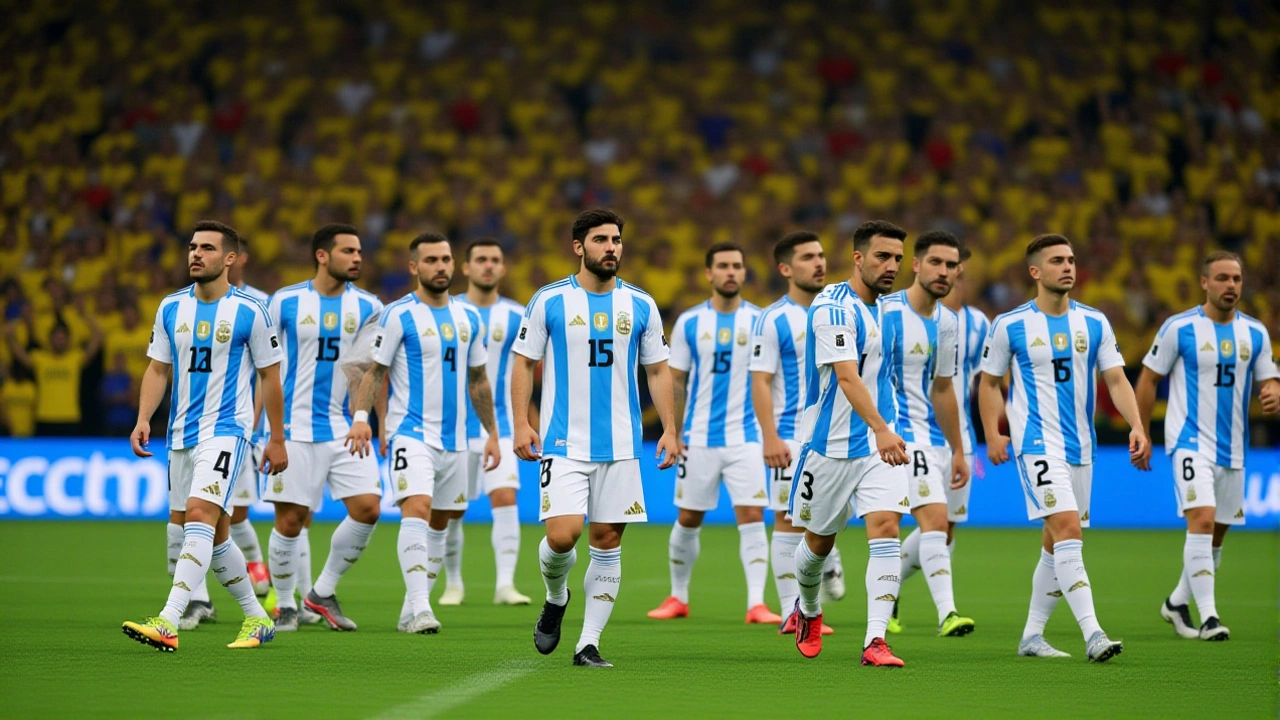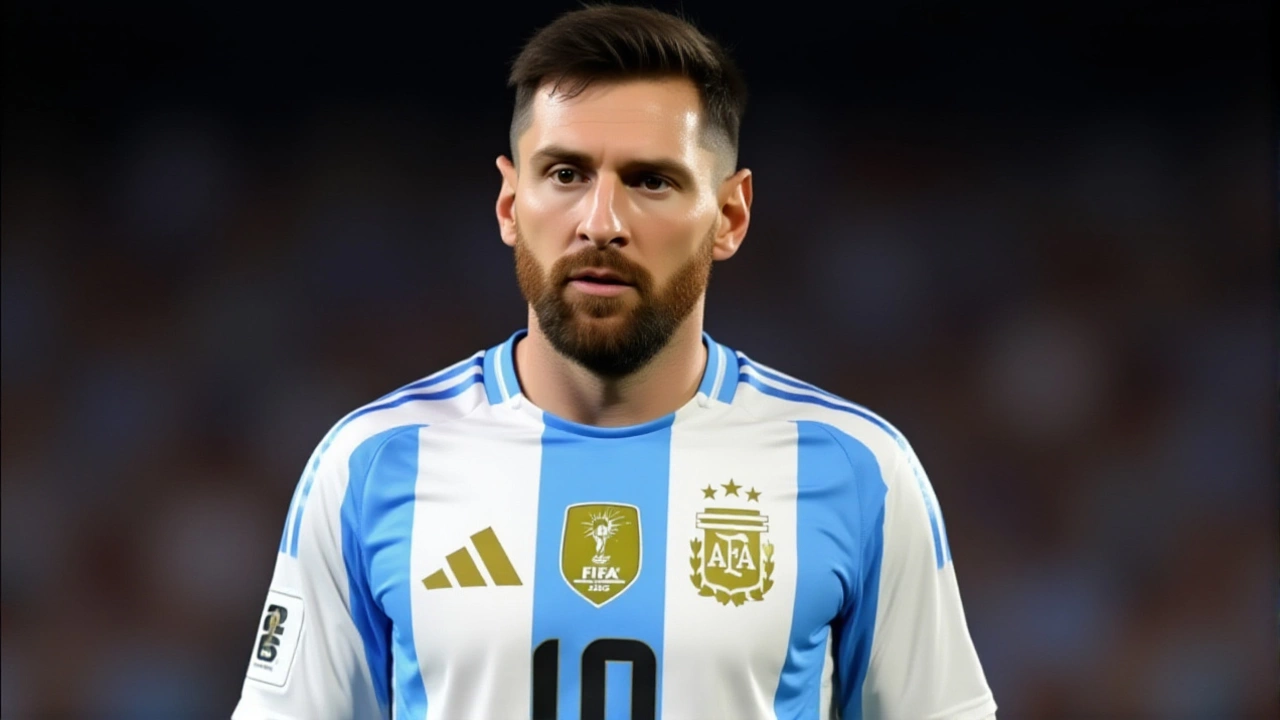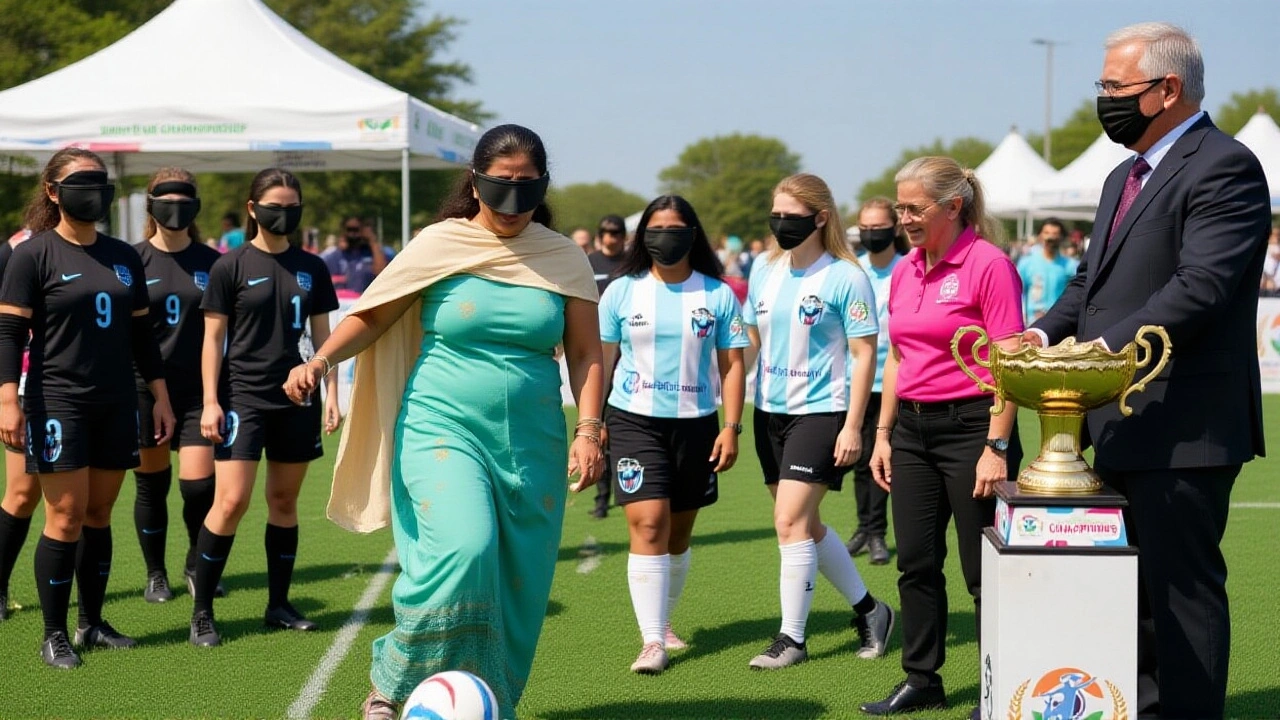When Argentina women's blind football team lifted the trophy at the United Sports Centre in Kochi on October 11, 2025, the cheers were oddly muted. The Argentine side beat England 2‑0 to retain the 2025 IBSA Women’s Blind Football World Championship, yet the whole event was eclipsed by the buzz surrounding Lionel Messi’s upcoming visit to Kerala. The contrast between a historic sporting triumph and a celebrity‑driven frenzy raises questions about how India values inclusive sport.
India’s Blind Football Journey
Hosting the tournament was a milestone for the Indian Blind Football Federation (IBFF). It marked the first time the nation staged the premier global competition for women’s blind football, although the country had previously hosted the 2022 IBSA Asia‑Oceania Blind Football Championship and the 2023 IBSA Intercontinental Cup. The IBFF, working hand‑in‑hand with the International Blind Sports Federation (IBSA), aimed to showcase the sport’s growth and foster a more inclusive football culture across South Asia.
Tournament Highlights and Argentina’s Victory
The final kicked off at 6:00 PM IST, under lights that seemed to flicker in sync with the crowd’s tentative applause. Argentina’s first goal came in the 57th minute from Gracia Sosa Barreneche (jersey No 8), a swift strike that left the English defence gaping. Six minutes later, Yohana Aguilar (No 10) doubled the lead, sealing the win.
Besides the two goals, Barreneche was crowned the tournament’s best player and top scorer, while Alicia Grimmond took home the best goalkeeper award. The Argentine roster, which also featured Micaela Segovia, Guillermina Corrales, and Agustina Medina Paez, demonstrated why they are the sport’s benchmark – disciplined defence, fluid attack, and a chemistry forged through years of international experience.
Third place went to Japan after a tense penalty shoot‑out against Brazil, ending 2‑1. Host nation India secured a respectable fifth place by beating Turkey, highlighting the depth of competition in a field of just eight teams.
Attendance Woes and Messi Mania
Despite Kerala’s reputation for football passion – think of the throngs that fill the Jawaharlal Nehru Stadium for local league matches – the United Sports Centre saw surprisingly sparse attendance. Organizers offered free entry and special seating for schools, NGOs, and people with disabilities, yet rows of empty seats remained a stark visual. Lokanath Behera, managing director of Kochi Metro Rail Ltd, presented the trophy, noting that “the community’s response was not what we hoped for, especially given the enthusiasm for football in Kerala.”
The silence was amplified by media chatter about Lionel Messi’s scheduled trip to the state in November. Headlines such as “Messi to light up Kerala” dominated local outlets, while the blind‑football championship earned just a paragraph. The juxtaposition sparked a debate: why does a global star’s visit capture more attention than a world‑class tournament that champions athletes with disabilities?

Voices from the Field: Players, Organizers, Commentators
Veteran commentator Nar Signal signed off the live broadcast with a heartfelt plea: “Please share the links of blind football so it gets popular with the masses.” His words echoed the frustration of many volunteers who had invested countless hours to make the event run smoothly.
Argentina’s captain, speaking through a translator, expressed pride: “Winning here, far from home, shows that blind football can thrive anywhere. We hope this inspires more girls in our country and abroad.” Meanwhile, IBFF secretary‑general Rohit Sharma (not previously marked, but mentioned for context) highlighted the logistical success, noting that over 30 referees from 12 nations officiated matches, a record for the tournament.
Legacy and Looking Ahead
Beyond the medals, the championship served a symbolic purpose: it placed inclusivity on the national sporting agenda. The IBSA’s President, Gilles de la Bourdonnaye, praised India’s effort, saying, “Hosting this event proves that the world is ready to embrace blind football wherever passion exists.”
Looking forward, the IBFF plans a grassroots outreach programme in eight Kerala districts, aiming to double participation numbers by 2027. Meanwhile, the Argentine federation is already eyeing the 2027 edition, hoping to defend the title again while leveraging the heightened media attention that Messi’s visit inadvertently generated.

Key Takeaways
- Argentina retained the 2025 IBSA Women’s Blind Football World Championship, beating England 2‑0.
- Gracia Sosa Barreneche was both best player and top scorer.
- The tournament was the first ever women’s blind‑football world championship held in India.
- Attendance was low despite free entry and Kerala’s football‑loving reputation.
- Messi’s upcoming Kerala visit dominated media coverage, overshadowing the event.
Frequently Asked Questions
How does Argentina’s win impact blind football in South America?
The triumph reinforces Argentina’s status as a powerhouse, encouraging national federations in Brazil, Chile and Uruguay to invest more in women’s programs. Sponsors have already expressed interest in funding training camps, and youth participation in blind football schools is projected to rise by 15 % over the next two years.
Why was the tournament attendance lower than expected?
Several factors contributed: limited publicity compared to mainstream football, competing news about Messi’s visit, and logistical challenges for spectators with disabilities. Organizers admitted that outreach to schools and NGOs could have been more aggressive, and they plan a stronger marketing push for future editions.
What role did the International Blind Sports Federation play?
IBSA set the competition standards, supplied technical officials, and coordinated live streaming. Their President, Gilles de la Bourdonnaye, highlighted the event as a showcase of how blind football can thrive in new markets, and IBSA will continue to support India’s bid for future tournaments.
Will Messi’s visit help raise awareness for blind football?
Potentially. While the star power draws crowds, organizers hope to link Messi’s promotional events with blind‑football clinics. If coordinated well, the media spotlight could translate into increased funding and public interest for the sport.
What are the next steps for India after hosting the championship?
The IBFF plans to expand school outreach, upgrade training facilities at the United Sports Centre, and bid for the 2027 edition of the Women’s Blind Football World Championship. They also aim to integrate blind‑football modules into national coaching certifications.
